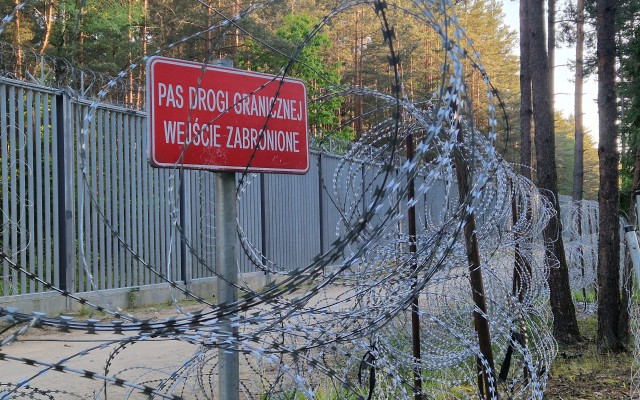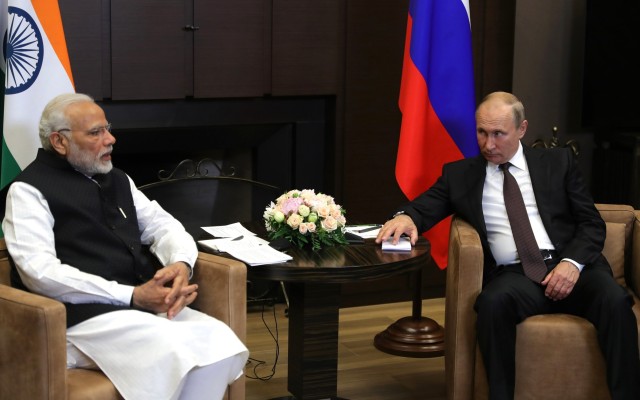
‘Stress Testing Democracy’
A Brief History of Poland and Migration
by Adam Balcer
Published on: February 6th, 2025
Read time: 14 mins
As of today, the ethnic structure of Poland is changing rapidly and substantially due to migration. The “security first” manner in which this issue is managed by political elites presents a fundamental challenge to the future of the country’s democracy and EU membership, both of which are closely interrelated.
Until the middle of the 20th century, Poland – or at least the territory perceived by Poles as historically Polish – had been ethnically and religiously heterogeneous for around 600 years though, of course, there were some important exceptions, namely rather homogeneous regions in the centre of the country. However, the composition of the country changed dramatically because of the Second World War, which transformed Poland from one of the most ethnically diverse countries in Europe to one of the most homogeneous. Today, due to a huge inflow of migrants and refugees, mostly Ukrainians, Poland’s ethnic composition is undergoing a rapid and profound transition, as the nation state is transformed into a truly multicultural country.
This process has already provoked considerable social tensions and has been instrumentalised by many Polish politicians, including those of the mainstream in recent years. These politicians have created a negative correlation between migration and alleged threats to social-economic and national security, invoking the spectres of criminality, terrorism and poverty. As a worst case scenario, it's possible to imagine that Poland’s democracy may not survive this politics of fear and moral panic.
The strength of fear around migration stems from a rather closed, ethnically-driven conception of national identity, which has been thrown into question amid the rapid secularisation which is simultaneously taking place in Poland.
‘The great replacement’
In Poland, religion has been strongly intertwined with identity. Modern Polish nationalism developed in the second half of the 19th century and the first half of the 20th century, promoting a vision of the nation as a homogeneous ethnic community. This was based on an imagined set of common roots stretching back to ancient times, with a conception of one culture (conservative), one language (Polish) and one religion (Roman Catholicism). Consequently, ideas such as civic nationalism, which promotes the centrality of citizenship and state, or multiculturalism gained ground only among a minority of Poles (mostly urban dwellers, better educated, liberal and left).
Since then, ethnic identity has retained its predominance over civic and multicultural identities, despite the secularisation of recent years. Certainly, Polish society can still be distinguished from much of Europe due to a higher level of conservatism and religious practice, though recently it has become decisively less religious, as well as more liberal in terms of social values.
The rise of secularisation has caused something of an identity vacuum in Polish society. And though many experts assumed that this would lead to a more politically liberal society, this has not necessarily been the case. Instead, this vacuum has been filled in to a large degree by ethnic nationalism.
Between 2015 and 2024, far-right parties have performed very well in national, presidential and European elections gaining around 50% of votes. Moreover, in recent years Civic Coalition (KO), the big-tent political alliance currently ruling in Poland, which is aligned with the European People’s Party (EPP), has started to flirt with a soft nationalism and xenophobia, directed particularly towards Muslim and African immigrants, though also against Ukrainians, albeit to a lesser degree.
Migrants and refugees
In the most recent census of 2021, out of Poland’s population of just over 38 million people, 3.5% of citizens declared a different nationality or ethnicity as their primary or secondary identity. However, the census did provide an estimate for the number of immigrants and refugees, whose presence has increased radically in recent years. The highest estimates for the number of all immigrants and refugees – including those who reside permanently in the country, as well as those who come on a temporary or seasonal basis, and illegal ones – sit around 3 million people. The great majority of these are Ukrainians, with the rest of the number mostly composed of citizens from Eastern Europe, the South Caucasus and Central Asia, particularly neighbouring Belarus. The sizable Ukrainian diaspora began to grow more than 10 years ago, first through economic migration which was then followed by a massive influx of refugees after the Russian invasion of 2022. Indeed, after Germany, Poland is now home to the largest community of Ukrainian refugees in the EU, numbering almost one million people. When it comes to EU nations, Poland’s Ukrainian refugee community is second only to Czechia, when measured as a proportion of the overall population.
At the beginning of the conflict with Russia, Polish support for Ukrainian refugees was enormous, but today the honeymoon for this particular relationship has come to an end. For a rising number of people, the permanent presence of Ukrainians represents a challenge to Polish identity, as well as the economy and society at large.
In fact, when it comes to migration, it appears the Polish state, as well as the population at large, wants to “have its cake and eat it too”. Although liberal in terms of giving work permits, permanent residence remains rather difficult to obtain in Poland – with receiving citizenship even more challenging. Generally, people can come to work but they are not very welcome to settle. This exclusiveness and reluctance to accept people as Polish citizens especially concerns Muslims and to a lesser degree Black people, with Ukrainians also affected but in a considerably softer version because they are white and Christian.
‘War of the worlds’
In 2001, Law and Justice (PiS) was founded. This “soft” far-right party, which has clear authoritarian inclinations, ruled Poland in coalition between 2005 and 2007, and as the party of government from 2015 to 2023. Since 2014, its political identity has been based on a policy of fear, shaping and reinforcing stereotypes, anxieties and prejudices to create a moral panic of the kind seen in the 1938 radio drama of War of the Worlds, the science fiction novel by H. G. Wells.
The main scapegoat of this moral panic over the Other has been Muslims, even though they are in fact a very small group in terms of the overall population. This phenomenon is most pronounced when you compare the attitude towards people who have come to Poland from Ukraine to those who have arrived from Africa and the Middle East. After Law and Justice became the single ruling party in Poland in 2015, there has been a shift in the public acceptance of refugees from the Middle East and Africa. In 2015, almost 50% of the population said no to accepting refugees from these regions – since then opposition has grown to almost 75%. Moreover, around two thirds of the population say they do not like Muslims living in Poland, though the actual issues caused by their presence are clearly very limited. See CBOS, Stosunek Polaków i Czechów do przyjmowania uchodźców (Warsaw, 2018), 4. Accessible here.
In the summer of 2021, Islamophobia and racism assumed a key place in the political identity of Law and Justice, as Belarus and Russia provoked a humanitarian crisis on the border by attracting people, predominantly from Africa and the Middle East, and pushing them into Poland. The Polish state reacted with the use of force on a massive scale, denying these people entry into Poland and using “push backs” to force them back across the border, often leaving them stranded and stateless. In denying these people the opportunity to make applications to be treated as refugees, this policy violates Polish, international and EU law. It has also, indirectly, resulted in dozens of people losing their lives.
Why xenophobia is the new normal
In Autumn 2023, Law and Justice lost power to a diverse coalition of parties, including those from the left and the center right. Despite criticism of Law and Justice’s authoritarian policies, former European Council President Donald Tusk ran an electoral campaign which exhibited many characteristics of soft xenophobia, targeting people from Muslim and African countries. The government which Tusk established in December 2023 has to a large degree continued the xenophobic policy of their predecessors concerning the Polish-Belarussian border, though in a softer version. Overall, it has greatly exaggerated the scale of the illegal immigration, presenting it almost exclusively as a threat to Polish security.
In 2024 around 30,000 attempts of illegal border crossings were recorded – a figure which includes multiple efforts by single individuals – yet Polish government and the media, including a majority of liberal platforms, give the impression that this is the gravest crisis imaginable within the EU. In fact, according The European Border and Coast Guard Agency, or Frontex, in 2024 illegal crossings on the entire Eastern border of the EU, nearly stretching almost from the Barents Sea to the Black Sea accounted for just 7% of all crossings of this kind on the EU’s external borders. Frontex, ‘Irregular border crossings into EU drop sharply in 2024’, 1 January 2025, accessible here.
As a result of the politics of fear, which has been pursued to a various degree by almost the entire political elite, opinion polls currently show that almost 75% of Poles no longer believe that people trying to cross the border have the right to asylum, something which is guaranteed in international and domestic law. The number of Poles rejecting these legal obligations increased by 20% since the beginning of the crisis on the border in 2021. Moreover, the most recent polls show that around two thirds of Poles accept “push backs”. CBOS, O sytuacji na granicy polsko-białoruskiej (Warsaw, 2024). Accessible here. Indeed, approval for this policy has increased by 15% since 2022. The rise in both of these figures may be accounted for by supporters of the current government endorsing positions and policies first introduced by the far right.
However, Tusk’s government has also gone further than its predecessors. In July 2024, Polish parliament passed legislation with a vast majority removing criminal liability from uniformed personnel who use weapons on Poland’s eastern border. This legislation, which risks violating Polish, international and EU law, has not been endorsed in any EU member state. What is the most concerning is that surveys show that this law has gained support from around 85% of Poles. Ibid.
The government has also responded to refugee fatigue concerning Ukrainians sheltering in Poland – alongside economic tensions with Ukraine and historical Polish-Ukrainian disputes – by again mimicking the far right, adopting a softer version of its tough approach. In opinion polls, the number of Poles rejecting even modest social benefits for Ukrainian refugees has increased by more than three times to above 60% since the beginning of the full scale Russian invasion of Ukraine. In Spring 2022, more than 75% of Poles believed that the continued presence of Ukrainian refugees was a good thing. After two years, this number decreased to 45%. Piotr Pacewicz & Krystyna Garbicz, ‘Odwracamy się od Ukraińców. Niechęć młodych i kobiet. Zaciekłość Konfederatów,’ OKO.press 1 March 2024, accessible here. Finally, these trends have been accompanied by a considerable rise in antipathy from Poles towards Ukrainians who now enjoy sympathy from only a minority of citizens.
EU as a scapegoat
Migration and refugees has become a hot issue for Poland’s relationship with the EU, especially in regard to people of African and Muslim backgrounds, though to a lesser extent Ukrainians as well. When Law and Justice was ruling the country, the government attacked the EU, accusing its asylum policies of being an attempt by the EU’s strongest countries, including Germany, to subjugate Poland, violating its cultural identity and political sovereignty, as well as undermining its social and national security.
The opinion polls show that these ideas resonate among the great majority of Poles, indirectly entrenching a sense of Euroscepticism. ‘Polacy nie chcą już przywilejów strefy Schengen. Nowe badanie,’ Business Insider, 2 February 2025, accessible here. Tusk’s government has not tried to counter this narrative. In fact, it has decided to pursue it in a softer version. Here, it is playing with fire because membership of the EU constitutes one of a few key anchors for a fragile and vulnerable Polish democracy. EU membership did not stop the democratic backsliding of Poland between 2015 and 2023, but it considerably slowed down this process. Yet the continued rise of such Euroscepticism may substantially weaken the role of the EU in the Polish political system.
A bell-turn?
When Poles cast their votes on 15 October 2023, it’s no exaggeration to say the country was at the edge: if Law and Justice had stayed in power and formed a far-right coalition with the even more radical Confederation party then the de-democratisation of Poland would have accelerated greatly.
Tusk’s government is certainly at least the lesser evil in comparison to its predecessors, though it has intentionally chosen to play with the politics of fear, “soft” xenophobia and moral panic concerning Muslims, Africans and to a lesser degree Ukrainians.
In recent decades, results of elections in the great majority of European countries have confirmed that the mainstream mimicking ideas of the radical right in a softer version has not brought about a fall in the popularity of the far right. To the contrary, it’s often facilitated its rise by an increasing normalisation of xenophobia – yet still the government is pursuing this strategy.
Indeed, when we look at the polls, what we see in Poland today is actually that there has not been a major decrease of support for radical parties since the last national elections in the Autumn of 2023. Law and Justice and Confederation went on to get around half the vote at last year’s European elections (June 2024). If these results had been mirrored in the national vote then we would have had a far-right coalition in power. The rise of the more radical Confederation party, which in the most recent opinion polls received the backing of around 15% of decided voters, is all the more worrying.
The ruling coalition cannot hide behind the claim that its strategy is just about reflecting the social mood because to a large degree it has radicalised its own electorate by normalizing xenophobia in a softer version. There is a huge group of Poles who in opinion polls describe themselves as being “rather” against migrants, refugees, Muslims, Africans, Ukrainians, instead of “absolutely”. However, the main parties of government have never tried to convince these citizens to change their minds and become “rather” for. Instead, by promoting soft xenophobia they have created favourable conditions for some of their voters to slide to the far-right.
At the same time, the far-right opposition has grown ever more radicalised in an attempt to differentiate themselves from the government. The upcoming presidential elections between May and June this year are crucial for Poland’s future due to the considerable powers which will be held by whoever is elected. Victory of a far-right candidate may result in the fall of our current government and the establishment of a new one which will include radicals. There may even be snap parliamentary elections.
Rafał Trzaskowski, a candidate for Civic Coalition, the strongest political force in the current government, continues the strategy of soft xenophobia and “light” mimicry of certain ideas of radical right. If this strategy fails, Poland will most probably face the scenario of a “bell-turn,” which is described by the Varieties of Democracy Institute (V-Dem) as when democratisation fails and a country increasingly falls ever further into autocratisation. V-Dem Institute, Democracy Report 2024: Democracy Winning and Losing at the Ballot (Gothenberg, 2024), 25.
See also
Feature image by Sakuto (via Flickr).
Bulletin posts represent the views of the author(s) and not those of the ISRF.
Unless stated otherwise, all posts are licensed under a CC BY-ND 4.0 license.


